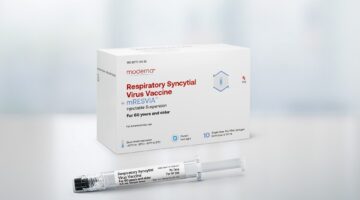One in three stethoscopes used by emergency medical service providers in the United States could be contaminated with MRSA — the antibiotic-resistant bacteria that was blamed for nearly 19,000 deaths and five times that number of infections in 2005.
Researchers at the University of Medicine and Dentistry of New Jersey swabbed 50 stethoscopesused by independent emergency medical service (EMS) service providers, such as nurses, EMTs and paramedics, according to a HealthDay News story published at U.S. News & World Reports’ Web site.
Of the 50 stethoscopes, 16 hosted colonies of MRSA (pronounced “mersa”) bacteria. The same number of EMS providers couldn’t remember the last time they cleaned their stethoscopes, according to study author Dr. Mark Merlin, assistant professor of emergency medicine and pediatrics at the UMDNJ-Robert Wood Johnson Medical School.

A Deep-dive Into Specialty Pharma
A specialty drug is a class of prescription medications used to treat complex, chronic or rare medical conditions. Although this classification was originally intended to define the treatment of rare, also termed “orphan” diseases, affecting fewer than 200,000 people in the US, more recently, specialty drugs have emerged as the cornerstone of treatment for chronic and complex diseases such as cancer, autoimmune conditions, diabetes, hepatitis C, and HIV/AIDS.
“There’s a simple solution for this potentially serious problem,” Dr. Merlin said in a release about his research. “Provide isopropyl alcohol wipes at hospital emergency room entrances so EMS professionals can clean their stethoscopes regularly.”
Duh.
Other common-sense practices – such as properly disposing of paper hospital gowns – could cut infections of so-called superbugs like MRSA by as much as 62 percent, according to a Reuters story about a meeting of the Society for Healthcare Epidemiology of America earlier this month.
Last month, about 50 Ohio hospitals agreed to participate in a U.S. Centers of Disease Control effort aimed at stopping the spread of C. diff, another potentially lethal bacteria, according to the Ohio Hospital Association.

Unlocking Transparency in PBM Pricing
The TSX Venture Exchange has a strong history of helping early-stage health and life sciences companies raise patient capital for research and development.
Â
More stories worth a read:
- Just in: Robin Williams discharged from Cleveland Clinic (19ActionNews.com)
- Pennsylvania Bio issues patient impact report on orphan drugs (BusinessWire)
- Wyeth CEO to get $53 million under Pfizer deal (Associated Press/Google News)
- Lilly CEO not interested in merger with Bristol- Meyers -Squibb (Wall Street Journal Health blog)
- Biotech firms struggle for funds (Financial Times UK)
- Five for the future: Minnesota’s emerging industries (Minneapolis-St. Paul Star-Tribune)
- Medtronic fluid- draining device recalled (Minneapolis-St. Paul Star-Tribune)
- Device to block strokes shows promise (Akron Beacon Journal/Associated Press)












